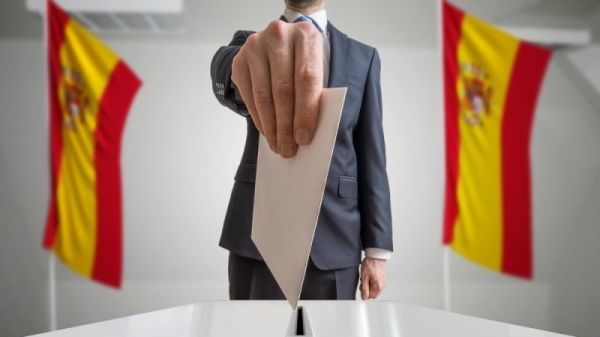Spaniards face EU elections with ideological confusion, says expert

While Spain is heading for the municipal and regional election on 28 May and a general election in December, Spanish citizens face the 2024 EU elections with a mix of scepticism and ideological confusion, CEO of the survey company 40dB Belén Barreiro told EURACTIV’s partner EFE.
In the European Parliament elections, scheduled for spring 2024, Spanish voters tend to mix “European” with “national”, says Barreiro, whose company is responsible for election polls at the national level for media such as El País and Cadena SER.
The border between national and European interests, increasingly blurred as much of the national legislation is decided in Brussels, has always been one of the great challenges for EU decision-makers in their strategies and institutional electoral campaigns.
“In the European elections, a lot of voting is done nationally. However, even though there was a distancing from the EU in previous European elections (the last was held in 2019), since the pandemic, Europe has returned to the centre of attention of Spaniards”, Barreiro states.
The health and economic blow from the pandemic, and since last February inflationary pressures and the crisis following Russia’s invasion of Ukraine, have increased the sense of vulnerability of citizens, who are once again looking for the ‘Europe that protects’ under the ‘European umbrella’, the expert adds.
Extraordinary measures such as the joint purchase of vaccines against COVID-19 or the Next Generation funds are just some of the best examples of a Europe that is strengthening its social muscle.
“For some years there has been great disaffection towards the EU. Although traditionally Spaniards have always been very pro-European, in the great recession (of 2008), distancing from Europe grew. However, since the pandemic there has been a very clear ‘reconciliation’ with respect to the EU,” stresses Barreiro, former president of the state-owned Centre for Sociological Research (CIS).
One of the common arguments about the “lack of interest” in the EU (however, with high percentages of young people participating in the last European elections) is the “distance” between the European institutions and the citizens, a view that Barreiro shares.
Who are the ‘EU left’ and the ‘EU right’?
“Perhaps the difficulties of ordinary citizens in understanding the complex web of the so-called ‘Brussels bubble’ make it difficult for them to identify with this distant Europe,” she says.
“Brussels is far away. What happens and is decided there is confusing and very technical. Debates on Europe should perhaps be approached differently. But the truth is that, for practical purposes, they (EU policies) are difficult for ordinary people to understand”. Barreiro adds.
In the same vein, Barreiro believes that “the citizen has always had doubts about what it means to be left or right wing in Europe (in the European Parliament). There is no clear line on how it (the EP) influences, and there is no clear relationship between what you vote for in your country and what the distribution (of power) in the EU is like”, the expert lamented.
“In Spain, someone who votes for the PP (EPP) or the PSOE (S&D), or another party, does not understand what that translates into at European level, and that is where the link is lost. The role of the European Parliament is not that of a national parliament”, the CEO of 40db states.
Barreiro alludes to a concept that has been reiterated – and growing – since the first direct elections to the European Parliament were held in 1979: the “democratic deficit”, the distance between Europeans and the EU institutions.
“I don’t know if it’s about the democratic deficit, but citizens know that it’s not (in the European elections) a vote like in their own country and that adds ambiguity, and makes them ask themselves: How is this really going to affect me?”.
(Fernando Heller | EuroEFE.EURACTIV.es)
Read more with EURACTIV




